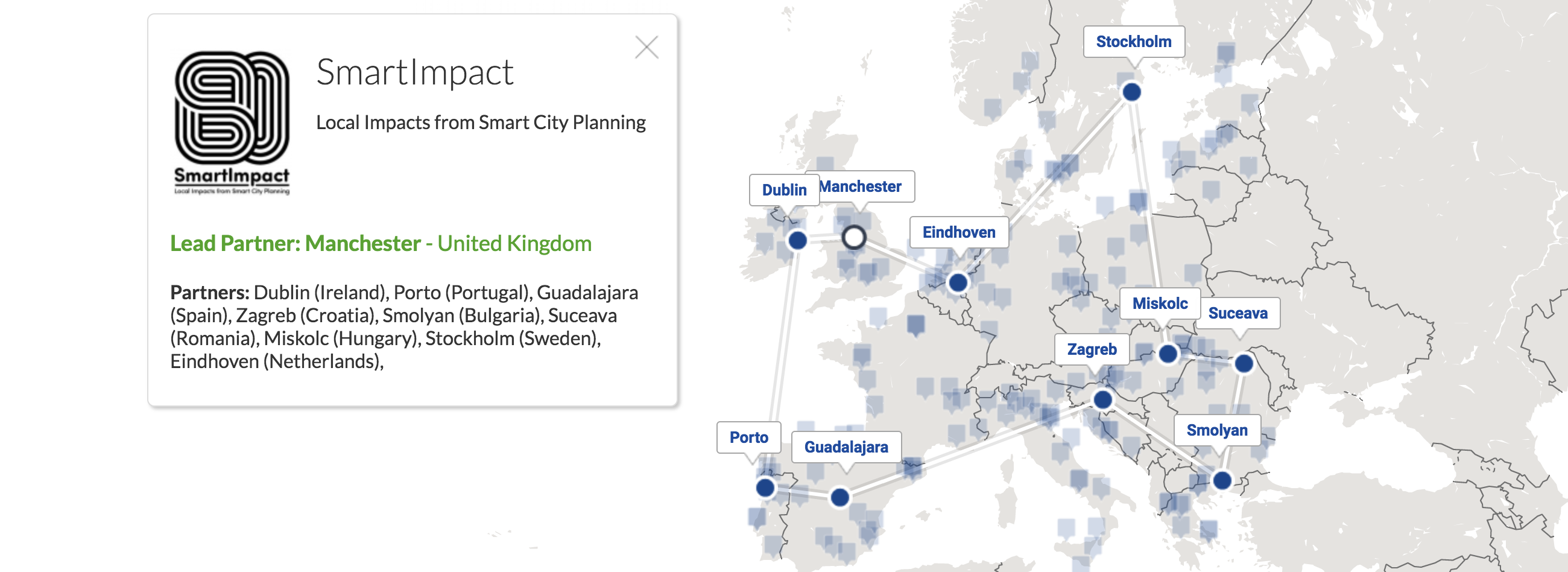Smart Docklands is a smart city project that is funded by Smart Impact under the Urbact EU funding scheme.
But first, what exactly is ‘Smart Impact’, and what is ‘Urbact’?
The Urbact EU programme is the name given to the European Territorial Cooperation programme, the aim of which is to foster sustainable integrated urban development in cities across Europe.
Operating for almost 15 years, Urbact’s mission is to enable cities to work together and develop integrated solutions to common urban challenges, in a collaborative environment that encourages learning an problem solving through a networking structure.
Following the success of Urbact 1 and 11, Urbact 111 – the current iteration of the programme which runs from 2014 to 2020 – has been developed to continue to promote sustainable integrated urban development and contribute to the delivery of the Europe 2020 strategy.
The key strategic objectives of the current programme are as follows:
1. Capacity for Policy Delivery: to improve the capacity of cities to manage
sustainable urban policies and practices in an integrated and participative way
2. Policy Design: to improve the design of sustainable urban policies and practices
in cities
3. Policy Implementation: to improve the implementation of integrated and
sustainable urban strategies and actions in cities
4. Building and Sharing Knowledge: to ensure that practitioners and decision-
makers at all levels have access to knowledge and share know-how on all aspects
of sustainable urban development, with the goal of improving urban development
policies
Smart Impact, is a two-year programme (May 2016-May 2018), funded by the European Commission through its Urbact programme.
The project is made up of 10 smart city partners – including Dublin – under the guidance of lead partner, Manchester City Council.
Supported by the Fraunhofer Institute, a leading research body and smart city authority, the key objectives of the ten partner organisations are as follows:
- Develop models of how organisations can adapt their structures to deliver smart cities
- Explore how to finance smart solutions through co-investment strategies
- Develop and support innovation ecosystems within cities
- Explore the role of both regulation and incentives
- Better understand how data integration and data platforms can support the smart cities
*For further information about Urbact and the Smart Impact programme, visit
www.urbact.eu/smartimpact

